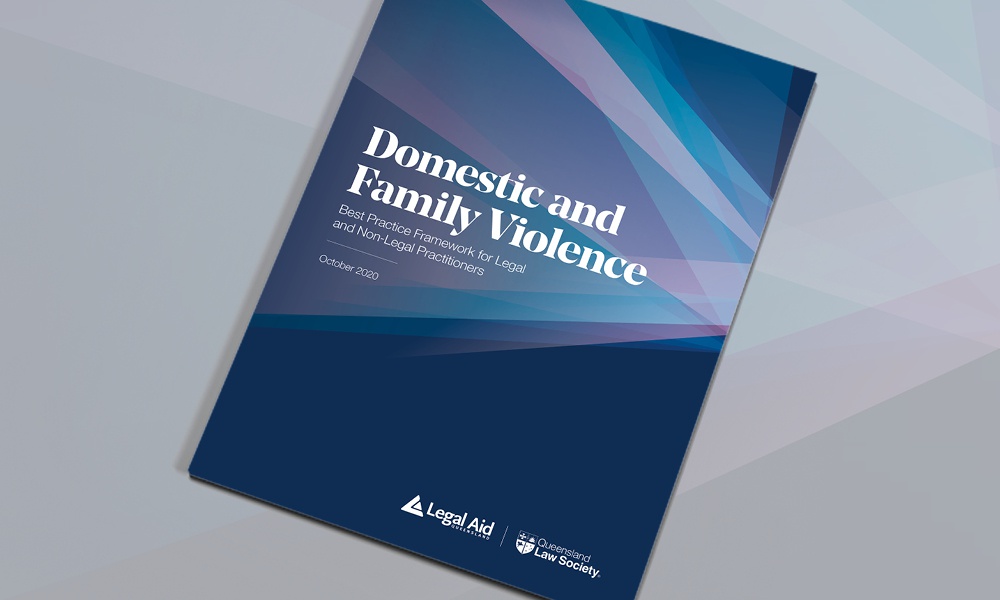Worldwide lockdowns to stop the spread of the coronavirus, also resulted in an increase in a pandemic of a different kind. Reports emerged that violence in a domestic setting has intensified dramatically.
Domestic and Family Violence can affect anyone, regardless of culture, race, gender and sexual identity, economic and employment status, age, or where they live.
Today (25 November) is the International Day for the Elimination of Violence against Women, a worldwide movement to put an end to gender based violence, and provides the perfect backdrop for the launch of the updated Domestic and Family Violence Best Practice Framework
Bringing together the combined expertise of Queensland Law Society (QLS) and Legal Aid Queensland (LAQ), the framework will help all practitioners deal with matters where domestic and family violence (DFV) is identified.
Queensland Law Society’s Domestic and Family Violence Chair Deborah Awyzio said the updated framework would go a long way to help practitioners best assist those affected by domestic and family violence.
“The framework recognises the importance of delivering consistent, high-quality advice and support across different sectors in a way that does not exacerbate risk or re-traumatise people,” Ms Awyzio said.
“A practitioner will be better equipped to provide safe support and advice where they understand the dynamics of domestic and family violence, the various ways trauma can manifest in a person experiencing violence as well as factors which indicate a higher risk of escalating violence or homicide.
Acting Legal Aid Queensland Chief Executive Officer Nicky Davies said everyone working across all areas of law needed to know how to respond if a person disclosed their experiences of personal violence.
“The framework includes seven best practice principles for working with people experiencing domestic and family violence, which include how to prioritise safety, communicate respectfully and appropriately and collaborate with other services,” Ms Davies said.
“We work in a sector where people share very personal details of their lives with us, and sometimes we’re the first ones to hear about incidents of domestic violence, so it is essential that we know how to respond and strive to ensure that personal safety is not compromised by legal interventions.”
The updated framework has benefited from input and feedback from a wide range of practitioners working across different practice areas and legal sectors.
The Domestic and Family Violence: Best Practice Framework for Legal and Non-Legal Practitioners is available for free on Queensland Law Society and Legal Aid Queensland websites.










Share this article